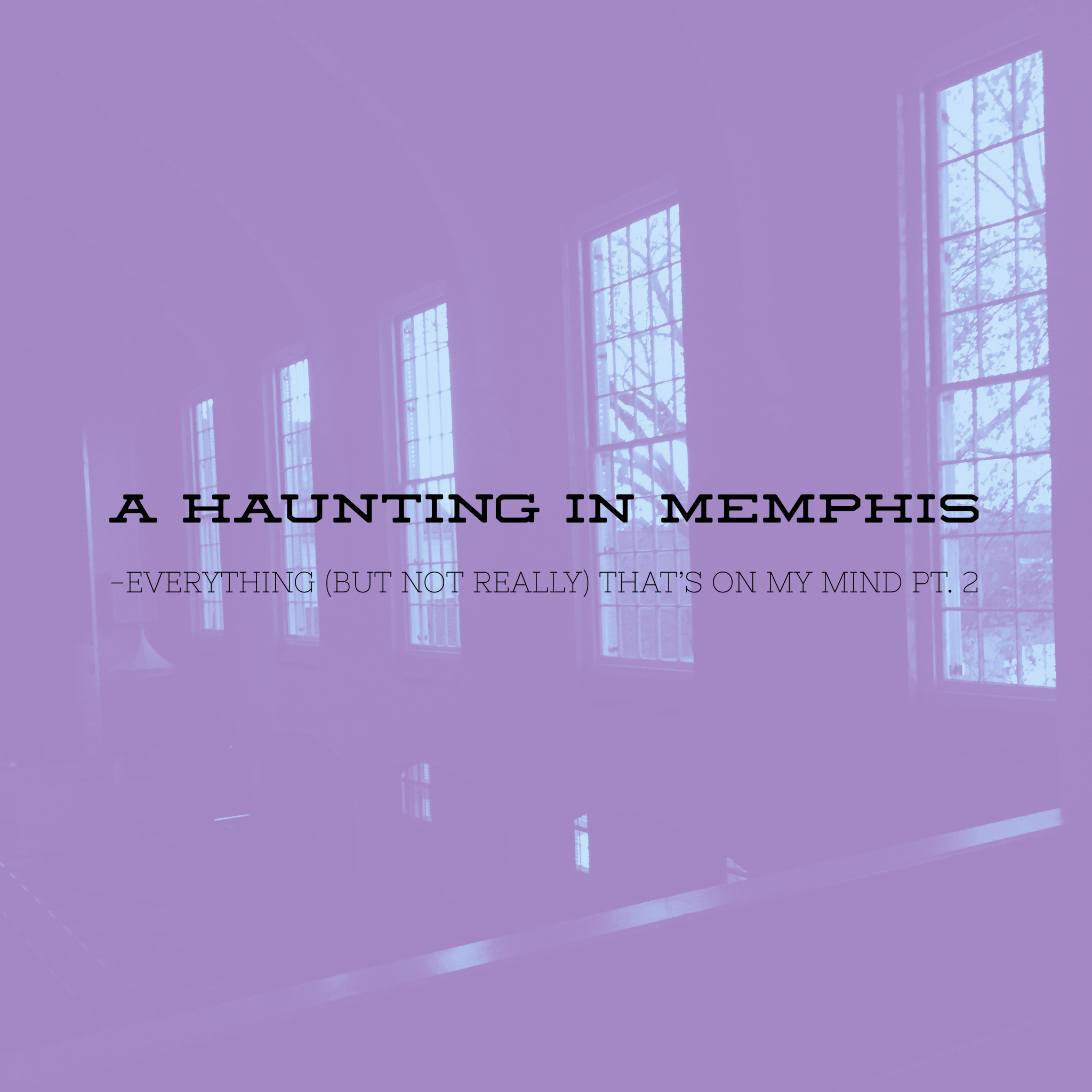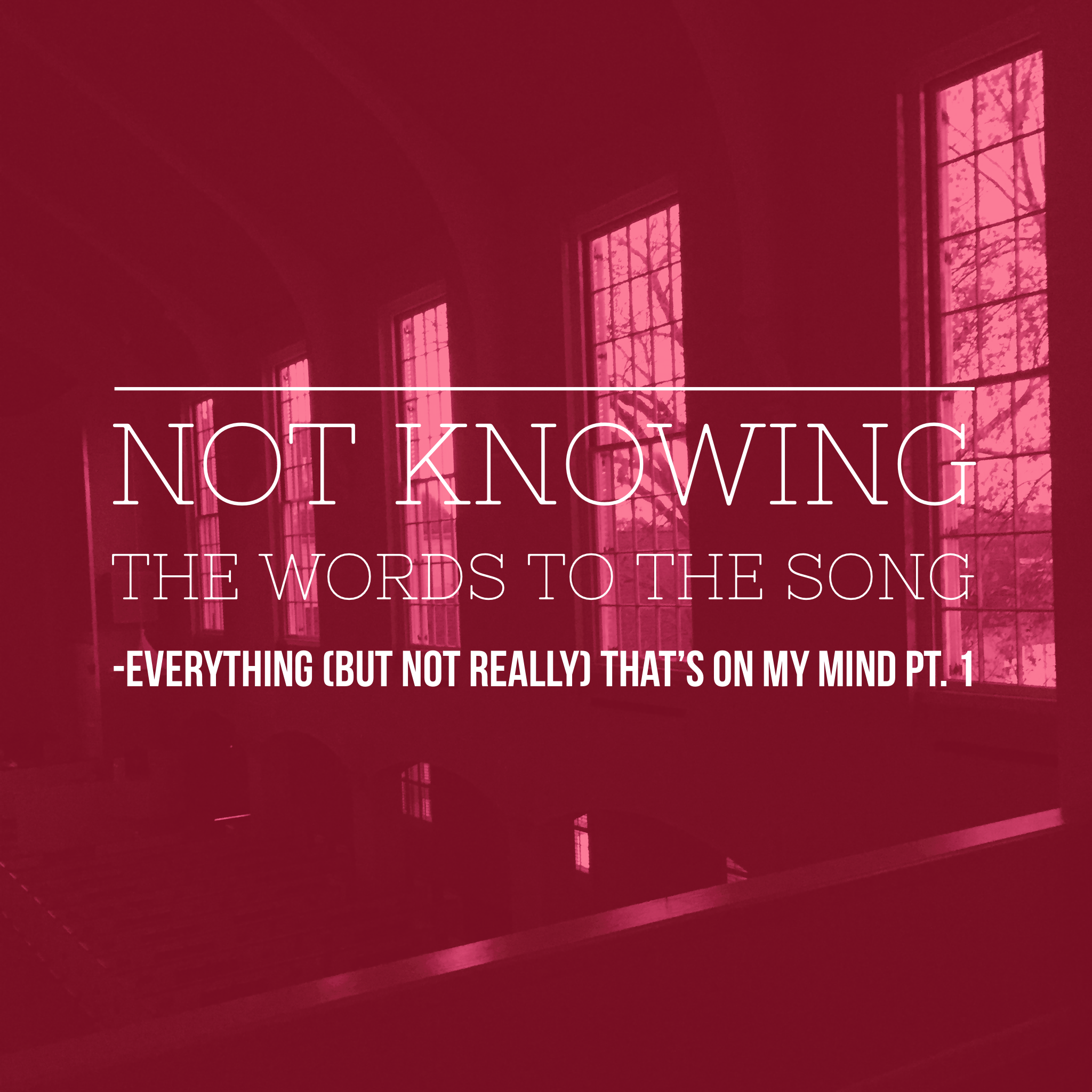A Haunting in Memphis
Note: I’m having such a difficult time writing currently and I don’t know why. Unless something happens in my life or in the larger world that shakes me from my creative doldrums, I just can’t seem to articulate my thoughts. On hand that is immensely frustrating. On the other hand, I’ve been doing a lot of work and am probably more at peace with myself than I have been in a long time. Maybe I don’t have as many ghosts clanging around my head that I have to exorcise them with the written word. But I still miss writing. In fact, I should be writing. So I am going to try spill out some of the random thoughts that are floating in my head in hopes that something will be the spark that ignites the rest of my mind.
While I was in Memphis, we went to the National Civil Rights Museum. The museum is located at the Lorraine Hotel where Martin Luther King, Jr. was shot. It was a haunting experience because the treatment of African-Americans in this country is a stain upon the church, a stain upon the nation that has billed itself to be a land of freedom from the start.
You cannot help but see people violently torn from their homes and stacked on slave ships to hear stories of their abuse to see white mobs violently tear non-violent protesters from lunch counters and think, “My God, what have we done? What are we still doing?” While there have been some improvements, it feels like prejudice has just evolved so it can stay alive. It’s taken different forms and scurried into different corners of our nation to survive.
The story of the museum mostly ends with the assassination of Dr. King and maybe that’s the point. Because that tragedy is not a crowning achievement. It’s this ugly truth that stares us in the fact that struggle for civil rights is still going on. April 4 in Memphis was not a triumphant period to that story but a lingering ellipses. What will happen next. What horror or progress will fill the next chapter?
And I struggle with where the church sits in all of this. The same night that Crowder played that convention hall stage. Two others highlighted that struggle. Hip hop artist Propaganda was in the room. Prop is outspoken in his support for the Black Lives Matter movement and after a song performed a spoken word piece in which he talked frankly about racism, xenophobia, and many of the other topics that would stare me in the face at the museum the next afternoon. It was great. His words needed to be heard in that room, but I wondered how much they were being heard.
After that author Ann Voskamp spoke and she came out of the gate and addressed the ugliness in the news represented by Weinstein, Moore, Spacey, Franken, etc. She spoke directly to how women have often been treated like trash within the church as she shared her own story of a friend he was groped by a youth worker. She challenged the phrase often used to wave off such behavior: boys will be boys. She said if that is the attitude that we take then girls will be garbage. She passionately advocated for seeing the Imago Dei in every single person. As Christians we are called to see everyone in the Image of God and as people of privilege we are called to look out for those who are not.
Again, it was great. She brought truth. But I sensed an uneasiness in the room. There was light clapping and amen at some of these important points, but it was tenuous. There were many people who were right there with her. Others were just ready to get on to Crowder. Voskamp never mentioned the president, but my friend Steve commented that “Boys will be boys” is not far off from “It’s just locker room talk.”
Voskamp didn’t have to mention the president by name. And I wondered if the resistance in that room was because half if not more cast a ballot for that man. It’s hard to give a full-throated affirmation to treating women with respect when you cast a ballot for a man who is on a recording saying the things the president has said. It’s hard to defend the oppressed when you make compromises to keep your preferences in power.
This isn’t to say that all those who voted for the president approve women being harassed and molested. But the American church has a history of not rushing to the aid of those who are being hurt because they are hesitant to give up their power. There is a racism and misogyny that is active and it is ugly. But there is also a racism and misogyny that is passive. That wants to let things be the way they are. “We need the votes.” “The hatred will eventually die out.” “We are not as bad as them.”
At the Civil Rights Museum, there is a model of the Birmingham prison cell where Dr. King wrote one of the 20th Century’s most famous epistles. The words are projected on a cinder block wall as a voice reads them: “For years now I have heard the word “Wait!” It rings in the ear of every Negro with piercing familiarity. This “Wait” has almost always meant “Never.” We must come to see, with one of our distinguished jurists, that “justice too long delayed is justice denied.”
I will take my sons to that museum. I want them to understand what has happened in the treatment of people outside of the structures of power; outside of, as Voskamp put it when referencing the biblical story of Esther, the palace gates. I want them to understand why these stories haunt me because I fear I am part of a church that far too often sides with the status quo. I hope that museum and those words spoken by Propaganda and Voskamp haunt those who were in that convention hall as much as they haunt me. And may that haunting move us to actually act like the church instead of propping up the status quo.






